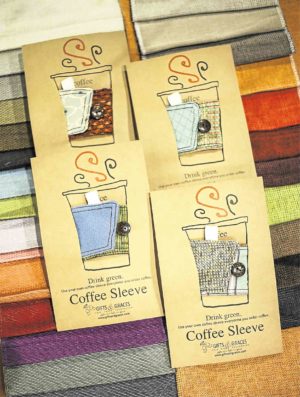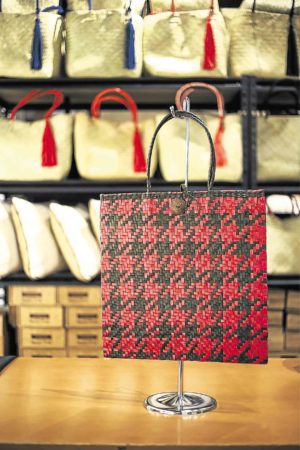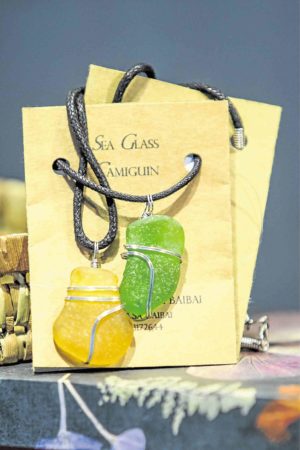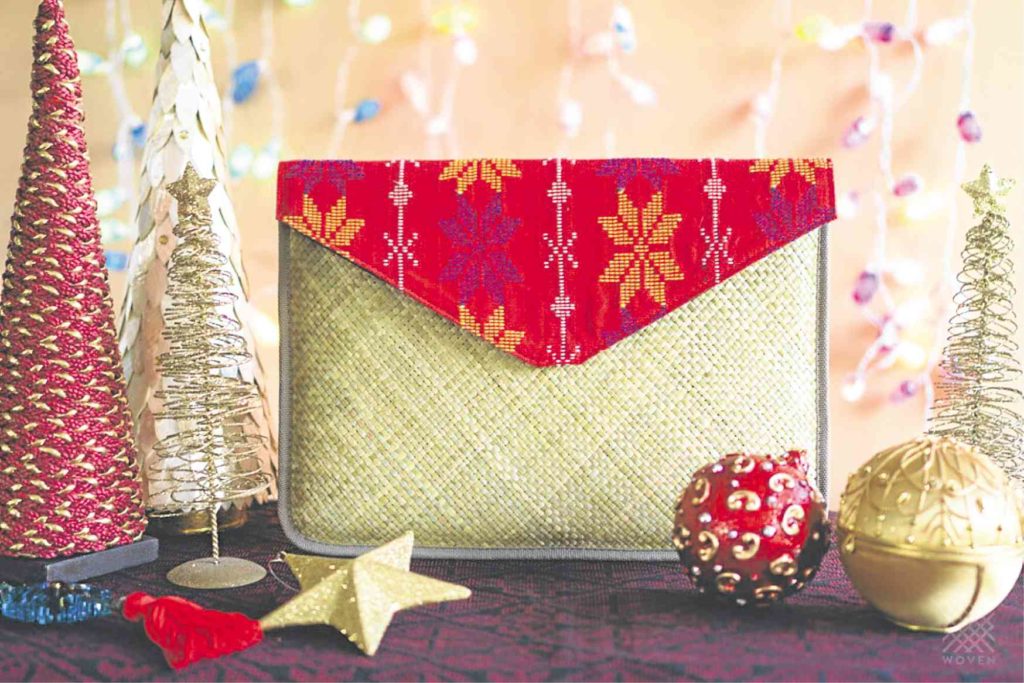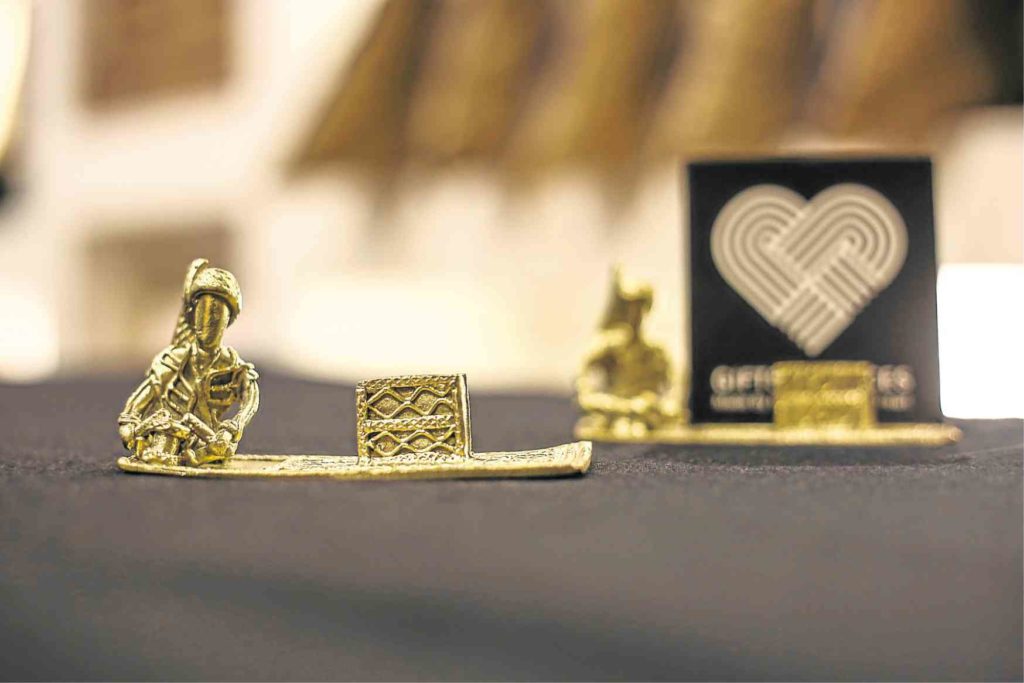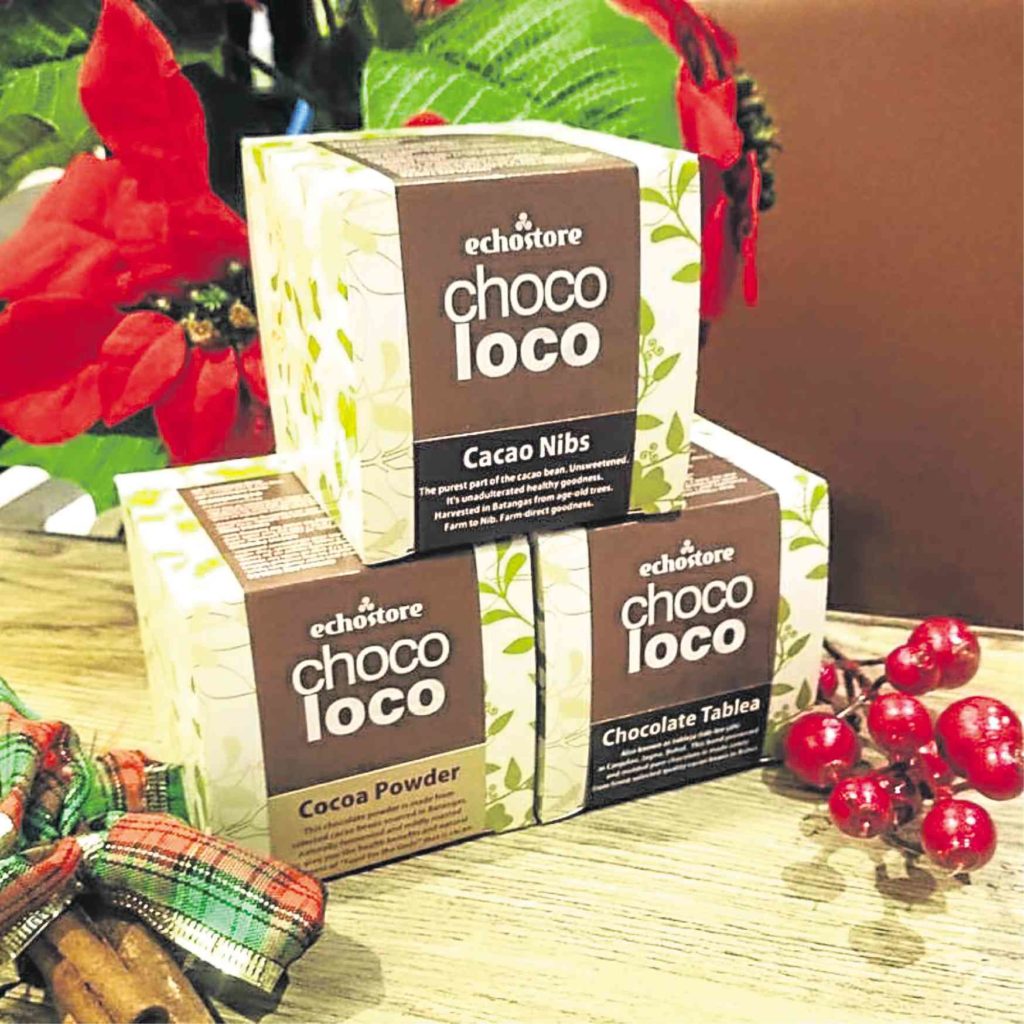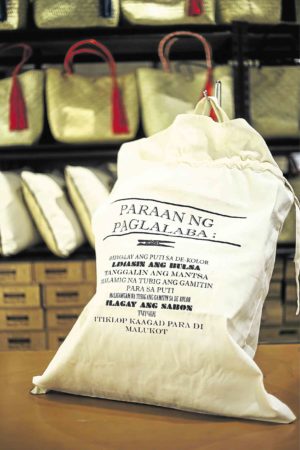Have yourself a merry Christmas, buy local gifts that give back
It’s just hours before Christmas and, unless you’re one of those uniquely talented people who finish shopping by October, chances are you still haven’t bought something for one or two people on your list.
If you’re at a loss for gift ideas, give this one a try: Local gifts that give back.
Ditch the “Made in China” tag and go for products that showcase the best of what our country—and our countrymen—have to offer, all while supporting social enterprises that help different communities earn a living.
These products aren’t hard to find; they’re in malls and specialty stores located nationwide. Drop by SM Kultura or Glorietta 2 in Makati, any CityMall branch, Rustan’s Cubao or Robinsons Place Manila, and look for the booths or stores which sport the sign “Go Lokal!”—it’s the Department of Trade and Industry-led initiative which aims to help micro, small and medium enterprises penetrate the mainstream market.
“By partnering with these retailers, all of the expensive fees are waived for MSMEs,” says Leah Ocampo, DTI. “We display the products first in pop-up booths, and the bestsellers are absorbed by these establishments.”
From food to fashion to furniture, there’s a bit of everything Pinoy in Go Lokal!
Some of these products include:
Mori Notes pursebooks by Mori Creations (P612.50): A notebook and purse combined, these products are handmade by work-from-home mothers from Quezon City who were previously unemployed or had been laid off from their jobs. They also make bags, decor, and accessories.
Sea glass necklaces by Sea Glass Pacific (P1,875): These pieces of jewelry are made by the women of Barangay Agoho in Mambajao, Camiguin, who also help clean up their beaches’ litter as the pendants are upcycled from seaside glass waste.
EcoSpeaker (P625): Save on your electricity bill by using these handmade bamboo speakers made by locals of Bangued, Abra. Just pop in your phone and hear the music be naturally amplified.
Truest soaps (P2,100) and candles (P2,800): Purchasing these products helps support livelihood groups, as well as indigent families in Leyte via a contribution to a sustainable and charitable project which directly benefits them.
Throw blankets (P700) and kitchen towels (P150) by Beyond Borders: Buying these handwoven textiles helps keep the tradition of abel weaving alive in the Ilocos region.
Shoes by Lipi Enterprises, Risqué Designs, and Jhaz Footwear (prices range from P1,250 to P3,000): Lipi, in collaboration with the Philippine Textile Research Institute, creates handwoven shoes. Risqué’s artisanal products are also handcrafted and mostly custom-made, while Liliw-based Jhaz Footwear specializes in espadrilles.
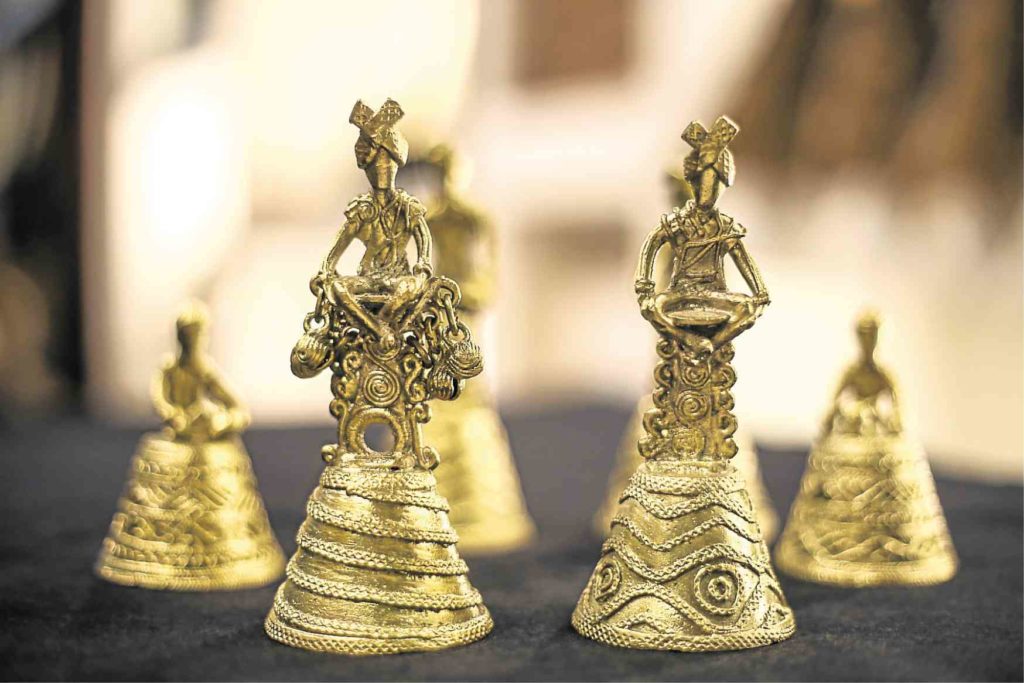
T’boli bells—The sitting Datu (with smaller bells)The bells are made from die-cast brass by the T’boli Tribe of Lake Sebu, South Cotabato. —Earvin Perias
Gifts and Graces
The nonprofit Gifts and Graces Fair Trade Foundation, Inc., also champions local artisans and social enterprises. The group works closely with these artisans to ensure that they come up with high-quality products that will benefit and improve their respective communities’ livelihood.
Look for these items in its Makati City store (Unit 323 LRI Design Plaza on N. Garcia Street), SM Kultura Crafts for a Cause section (in major SM branches), Ayala Museum, Robinsons Place Manila (third floor, Philippine crafts), and Robinsons Galleria (ground floor, department store):
T’boli Bells (The Sitting T’boli, P1,225; The Sitting Datu, with small bells, P1,300), and T’boli cardholder (P1,250): These are are made from die-cast brass by the T’boli tribe of Lake Sebu, South Cotabato. The cardholder’s gift box also makes use of hand-loomed t’nalak, also by the T’bolis, and the box is manufactured by a small entrepreneur from Taguig.
Eyeglasses pouches (P350) and coffee cup sleeves (P150): Upcycled fabrics are the main component of these products, sewn by the Pamana women’s cooperative from Mandaluyong City. The eyeglass pouches sport playful artwork of both Maria Clara and General Luna, with t’nalak hand-loomed fabrics at the back.
Pandan portfolio bags (P500): These totes, made from pandan leaves and woven by the weavers of Baybay, Leyte, are perfect for files and sketchbooks.
Dreamcatcher (P250): Crafted by the locals of Bulan, Sorsogon, this dreamcatcher is made from indigenous bakbak and coconut twigs.
Laundry bag (P450): Make laundry day more interesting with this bag made from sturdy canvas cloth and printed with washing instructions written in Filipino, also sewn by the Pamana women’s cooperative in Mandaluyong.
Brass jewelry (prices range from P500 to P1,295): These pieces are a marriage of two different materials: the pendant is made from diecast brass by the T’boli tribe of South Cotabato, while the braid is made from faux leather and recycled fabric by a group of women from Biñan, Laguna.
Echostore
This women-led social enterprise—the “Echotrio” of Chit Juan, Jeannie Javelosa, and Reena francisco—has seven branches in Metro Manila, Cebu, and Davao. The concept store advocates sustainable living through its ecofriendly and natural products.
Community Basket (starts at P1,629), which contains cashew nuts from Palawan and raw wild honey from Quezon: The honey is gathered by Aeta communities in Alabat and Tayabas, who are taught by an informal NGO called Quezon Advocates for the Environment how to harvest properly so as not to destroy the beehives. The cashew nuts, on the other hand, are grown by the Tagbanua of Palawan and gathered and monitored by Palawan NGO Network, Inc.
Choco Loco cocoa powder (P209), tablea (P185) and cacao nibs (P209): The tablea comes from Canjulao League of Women in Bohol, where the heirloom varieties of cacao are found. The cacao nibs and cocoa powder are processed in Batangas by small producers under the Women in Cacao initiative of cacao expert Josephine Ramos.
Coffee Starter crate (starts at P1,149): The coffee is grown and gathered by women coffee farmers in Benguet and Sulu who are organized by the International Women’s Coffee Alliance (IWCA) Philippine chapter. The farmers are taught to harvest only the ripest coffee cherries or fruits. These are then either dried naturally or washed and pulped if there is water available. The certified-organic muscovado sugar comes from smallholder sugar farmers in Negros, while the VCO comes from organized communities in Quezon.
Great Women
The Echotrio also heads the Empowering Communities with Hope and Opportunities through Sustainable Initiatives (Echosi) Foundation, which is the private-sector partner of the Great Women project, a public-private partnership program that helps small and micro enterprises led by women up the market value chain. Since its inception five years ago, the project has opened its own showroom and cafe along A. Arnaiz Avenue in Makati City, where you can find these items:
Envelopes, passport and cardholders (P250-P8,000): The combination of fine leather and Bagobo tribe textiles make these items instant statement pieces.
Great Women Advocacy Dolls (P5,000): Crocheted by a group of women from Cagayan de Oro, proceeds from the sales of these dolls will benefit the building of a home for sexually abused girls ages 7 to 17.
Bags, wallets, keychains, etc. (as corporate gifts, P250-P650): Again, a mix of textile and fine leather, these items proudly display handwoven binakol from Ilocos.
Roots Katipunan
Finally, there is Roots Katipunan, a coworking space, events place, and lifestyle store in Quezon City for entrepreneurs, students, and creatives. Its shelves are all stocked with “brands for a cause,” such as:
Hiraya Chocolates (P180-P200): The company behind these products source the cacao directly from a community of farmers in Barangay Malabog, Davao City.
Woven banig products (P180-P3,000): From mats to keychains to bag tags to purses and gadget cases, woven products are all made out of banig weaves by artisans in Basey, Samar. The company aims to keep this dying tradition alive by providing weavers consistent employment and market access.
Katutubong Kamay handicrafts: These accessories are made by indigenous peoples communities, who are the companies’ partner-beneficiaries. The products give these communities sustainable livelihood while promoting indigenous materials and preserving local culture.

